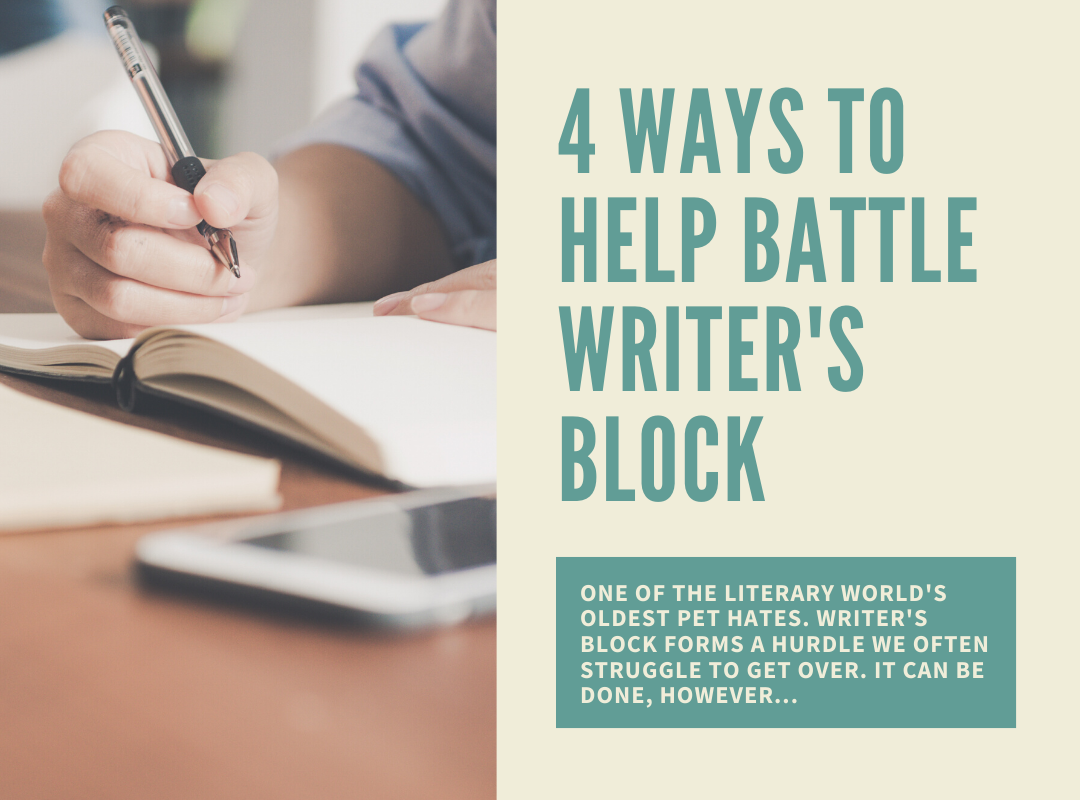
4 Ways to Help Battle Writer’s Block
One of the literary world’s oldest pet hates. Writer’s Block forms a hurdle we often struggle to get over. It can be done, however. I suggest a few ways how…
I want to address an issue that affects all of us, whether we’re jobbing authors, amateurs, or people trying to start out. Namely, the condition known as writer’s block. It can render us completely unproductive for weeks, months, years in some cases. I myself am a repeat sufferer; it can be very frustrating when you do actually want to work but just can’t find the drive, the motivation, the inspiration, the mood… the words. But I have found that there are a few things you can do to get past it.
1. READ
The first thing to do when the words for your own work aren’t quite flowing is to read. Reading is something you ought to be doing anyway; it can equip you with vocabulary, a familiarity with the style and form of literature. I tend to find it helps to read work that is similar in style or genre to what you’re working on – maybe even by an author who inspires you. And this extends into battling writer’s block. I know during my most recent spell earlier in the year, I wasn’t really reading anything similar to You Can Hear Chopin, my current work in progress. And then I started reading Alone in Berlin by Hans Fallada, and steadily, after absorbing the environment and the tone of that novel, I began to sort of piece it together in my mind of how I could inject that influence into my own writing at the point of the story that I had reached at that time.
For people who are more visual consumers, I would say it’s not unacceptable to watch films or series, if you find them more inspiring. When writing the Berylford books, I often had a Dickens or Austen adaptation on in the background and that would urge me along.
2. FREE WRITING
I recommend this a lot for people who want to get into writing but are not sure where to start. It is also great for writer’s block. If you hit a road bump in your story where you think, “Meh, I don’t really know where to go from here,” or you just lose your flow and can’t get it back again, my suggestion to you is to take a step away from the current project.
Start a new document and just write whatever comes into your mind. Just type. Whether it’s about your day, or another story idea you’ve been sitting on for ages. I do find that when you have several ideas that you want to work on at the same time, it does rob you of the motivation to focus on your current piece of work. Set yourself a time limit, whether that’s five, ten, whatever minutes of just writing, and then come to a stop. You can obviously get rid of anything you don’t like; keep anything you do. It might not work first time, but this idea of free writing might push you back in the right direction to finish your work.
3. WRITE BY HAND
Lately, I have been working on You Can Hear Chopin in my free time while at work. Just five- or ten-minute bursts. But I’ve been writing it all down by hand in a notepad. And then when I get home, I re-type it from there, and often edit myself as I go, so it’s almost like proof-reading a first draft in the process. I think because the act of writing by hand is actually relaxing to the brain that it feels much more natural, a much smoother process. I often find if I’m struggling to get something out on the screen that getting it down on paper with a pen really does help.
4. DO SOMETHING MONOTONOUS
You may have heard people have their best ideas while in the shower or while chopping vegetables or suchlike. And there is some truth in that. The creative juices tend to flow during monotonous, everyday tasks, when your mind can wander. Referring back to my last point, I started trying to work on my book at work. That’s because what I do is so repetitive, it is activating the creative part of my brain to work on You Can Hear Chopin as soon as I can. I can’t leave it until I get home from work. I discovered this early on. Doing the job I do, I’d be all inspired by lunchtime and think, “Yep, I’m going to do some writing when I get home,” but when I got there, I’d be like, “Nah, too tired now”. In short, do your monotonous task, get thinking about whatever you’re writing, and, if you feel inspired, act on it as soon as possible. Don’t give that creativity a chance to turn off again.
For more author news and views, my Facebook and Instagram pages are here. And drop a subscription to my YouTube channel to remain informed of the latest, plus some exclusives. Furthermore, my fortnightly podcast, The Dale Hurst Writing Show, is available to listen to here on Spotify.



Leave a Comment